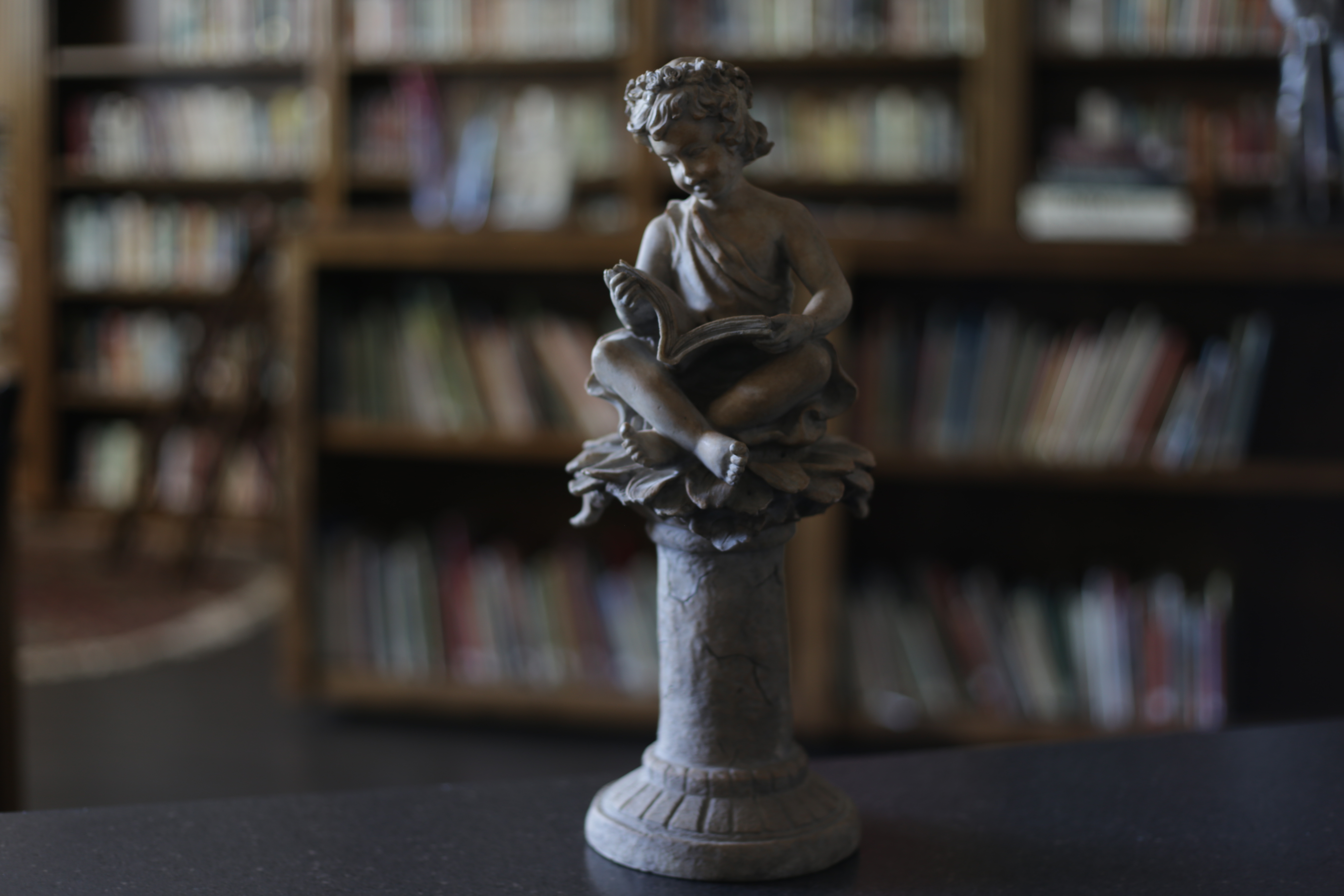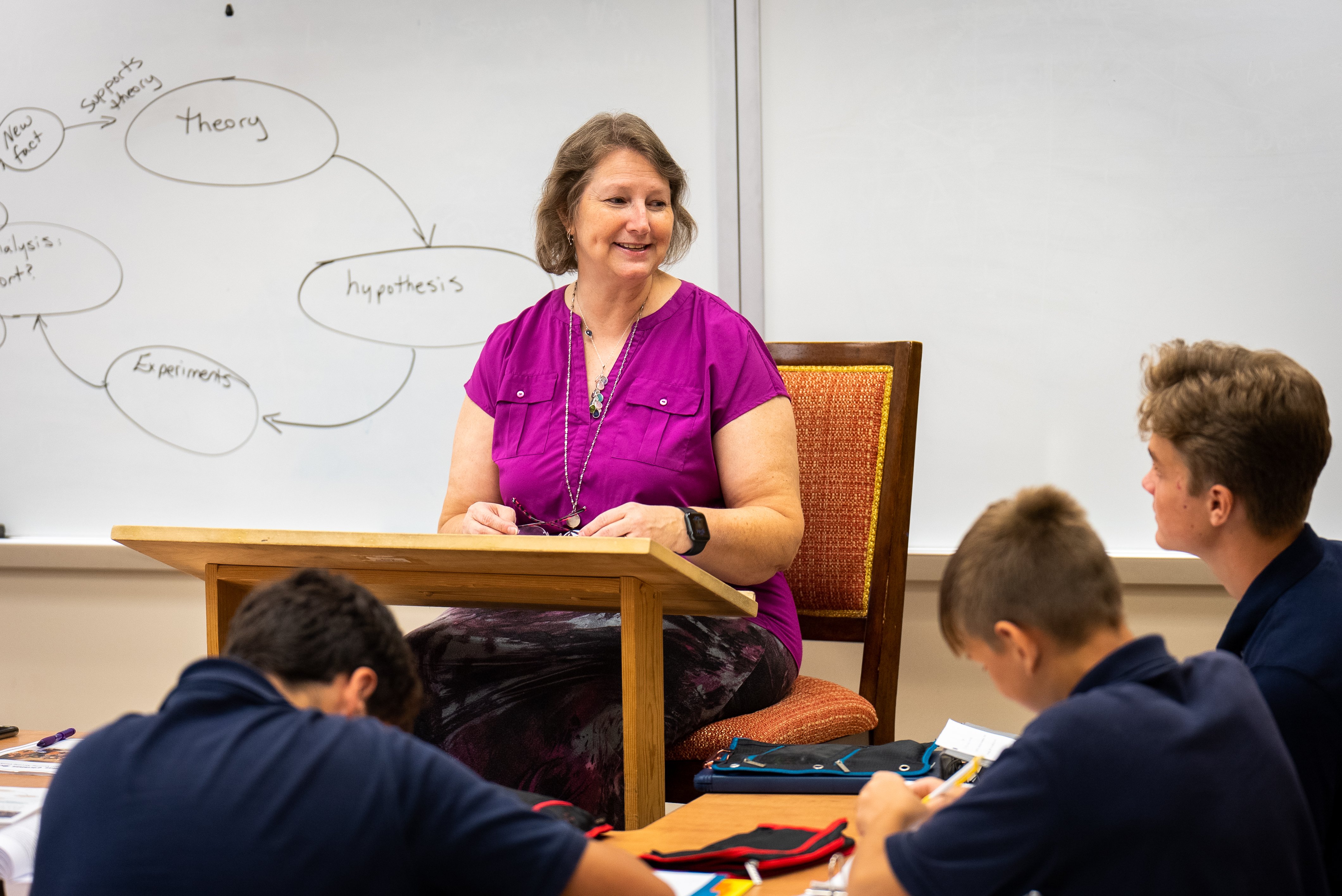Something new and exciting debuted at Trinitas this fall. All logic and rhetoric school (grades 7th-12th) students and faculty members gather together during first hour on Fridays to learn, discuss, and pursue wisdom together across a broad range of topics. Even parents are welcome to participate in what we are calling Schola Seminar.
In his book Norms and Nobility, David Hicks advocates for a return to a dialectical approach to education. Especially effective in the context of teachers and students learning together, dialectical education requires learners to commit to certain positions in order to test those commitments against experience, established wisdom, and ultimately, the truths of Scripture. Often utilizing primary sources and Socratic questioning, this approach to learning fosters moral and intellectual growth in participants.








